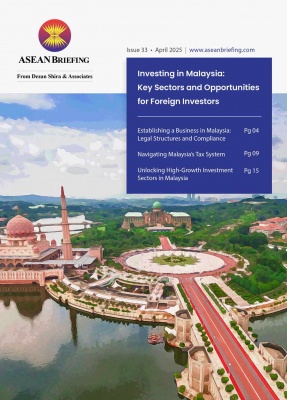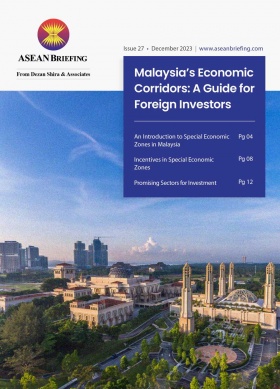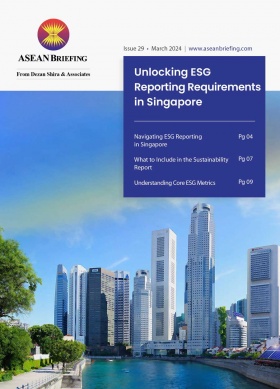Amendments to Singapore’s Payment Services Act: Strengthening Oversight and Protecting Consumers
The Monetary Authority of Singapore (MAS) has announced amendments to the Payment Services Act 2019 (PS Act) passed in 2021, which will take effect six months in phases starting from April 4, 2024. The amendment expands the scope of activities regulated in the Payment Services Act.
Safeguarding customers’ assets within Digital Payment and Transfer (DPT) service providers involves several protective measures. These include placing assets in a trust account dedicated to customer benefit, maintaining accurate records, and implementing robust systems and controls to uphold asset integrity and security. Aimed at strengthening the supervision of the digital payments industry and increasing consumer protection, this amendment could expand the scope of payment services under central bank regulations and hold digital payment token (DPT) service providers accountable against money laundering and countering the financing of terrorism.
These expansions aim to create a more secure and trustworthy digital payment environment in Singapore.
Expansion
The PS Act covers custodial services for DPT, the facilitation of transmission and exchange of DPT, and the facilitation of cross-border remittances between countries even where the currency is not accepted or received in Singapore. This ensures proper safeguarding of digital assets like cryptocurrencies held by service providers on behalf of customers and brings even international money transfers under the PSA’s purview.
Businesses already operating in these areas must notify authorities and apply for licenses. Additionally, the new guidelines focus on consumer protection. Digital payment token service providers must gain explicit consent from certain investors before offering less protected services, keep customer assets separate, implement strong risk management, clearly disclose information, and potentially face restrictions on handling retail customer assets.
Specifically, A six-month transition permit exemption will be granted to people affected by expanding the scope of payment services. Affected entities currently carrying out activities to be regulated under the PSA must do the following to continue their activities while MAS reviews their permit applications:
- Notify MAS within 30 days of April 4, 2024;
- Submit a PSA license application to MAS within 6 months from April 4, 2024; and
- Submit to MAS an attestation report (on the entity’s business and compliance with AML/CFT requirements) prepared by a qualified auditor within nine months from April 4, 2024.
User protection requirements
The Guidelines on Consumer Protection Measures by DPT Service Providers issued under section 101 of the PS Act will take effect from October 4, 2024. These guidelines seek to promote the relinquishment of sound and robust practices for DPT service providers and include measures such as separating customers’ assets and placing them in a trust account for the benefit of customers, maintaining proper books and records, and ensuring that effective systems and controls are in place to cover the integrity and security of customers’ assets.
When customers entrust DPT and other assets to a DPT Service Provider, the service provider must have effective and strong arrangements to Separate customer assets from their assets and provide transparent monthly reports to customers containing information about transactions, asset status, asset movements, balances money, and financial costs.
This is to reduce the risk of loss or misuse of customer assets during ordinary business activities and facilitate the return of customer assets if the DPT Service Provider goes bankrupt.
In addition, providers must implement a strong risk management system that can prevent unauthorized access, control asset movements, and ensure the security of DPT instruments to explain asset storage policies and asset loss handling processes to customers to increase transparency and DPT Service Provider accountability.
By implementing these protective measures, DPT customers can feel more secure and confident that their assets are well protected.
New Anti-Money Laundering Rules for Payment Services
MAS is changing the rules to fight money laundering and terrorism financing for payment services. These changes apply to some already existing rules (PSN01 (Prevention of Money Laundering and Countering the Financing of Terrorism – Specified Payment Services (PSN01) and Prevention of Money Laundering and Countering the Financing of Terrorism – Digital Payment Token Service (PSN02)) and some new ones the Notice on Submission of Regulatory returns (PSN04), Notice on Conduct (PSN07), and Notice on Disclosures and Communications (PSN08).
- PSN01 and PSN02: More types of payment services will now need to follow these anti-money laundering rules. The rules are also being updated to match international standards.
- PSN04: Companies will have more time to comply with new data reporting requirements. The new deadline is January 1, 2025.
- PSN07: Businesses will have more flexibility in how long it takes to transfer money. This applies to both businesses and sole proprietors. The rules also now specifically cover merchant acquirers. This starts in October 2024.
- PSN08: All customers, including investment firms, need to be informed about the risks of using certain services. This rule is already in effect.
About Us
ASEAN Briefing is produced by Dezan Shira & Associates. The firm assists foreign investors throughout Asia and maintains offices throughout ASEAN, including in Singapore, Hanoi, Ho Chi Minh City, and Da Nang in Vietnam, in addition to Jakarta, in Indonesia. We also have partner firms in Malaysia, the Philippines, and Thailand as well as our practices in China and India. Please contact us at asean@dezshira.com or visit our website at www.dezshira.com.






















